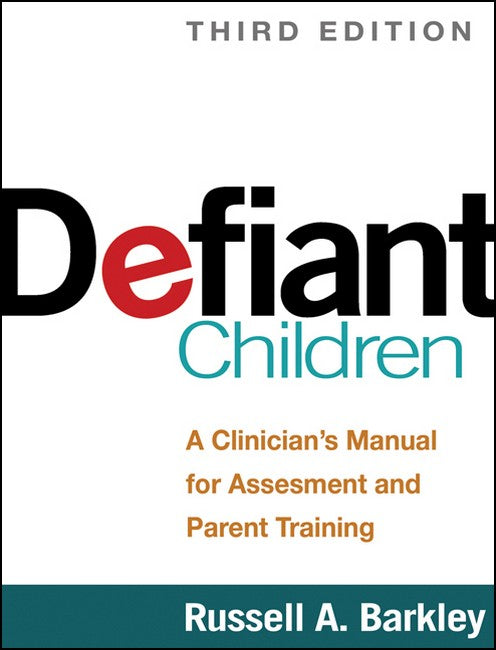Introduction I. Prerequisite Information for Using the Program 1. The Rationale for the Program 2. Clinical Assessment of Defiant Children 3. Practical Considerations in Parent Training 4. An Overview of the Parent Training Program II. Guidelines for Therapists in Conducting the Program Step 1. Why Children Misbehave Step 2. Pay Attention! Step 3. Increasing Compliance and Independent Play Step 4. When Praise Is Not Enough: Poker Chips and Points Step 5. Time Out and Other Disciplinary Methods Step 6. Extending Time Out to Other Misbehavior Step 7. Anticipating Problems: Managing Children in Public Places Step 8. Improving School Behavior from Home: The Daily School Behavior Report Card Step 9. Handling Future Behavior Problems Step 10. Booster Session and Follow-Up Meetings III. Assessment Materials Form 1. General Instructions for Completing the Questionnaires Form 2. Child and Family Information Form 3. Developmental and Medical History Form 4. Home Situations Questionnaire Form 5. School Situations Questionnaire Form 6. How to Prepare for Your Child's Evaluation IV. Parent Handouts Parent Handout for Step 1. Profiles of Child and Parent Characteristics Parent Handout for Step 1. Family Problems Inventory Parent Handout for Step 1. Diagram of Oppositional Defiant Intervention Parent Handout for Step 2. Paying Attention to Your Child's Good Play Behavior Parent Handout for Step 3. Paying Attention to Your Child's Compliance Parent Handout for Step 3. Giving Effective Commands Parent Handout for Step 3. Attending to Independent Play Parent Handout for Step 4. The Home Poker Chip/Point System Parent Handout for Step 5. Time Out! Parent Handout for Step 7. Anticipating Problems: Managing Children in Public Places Parent Handout for Step 8. Using a Daily School Behavior Report Card Parent Handout for Step 9. Managing Future Behavior Problems

